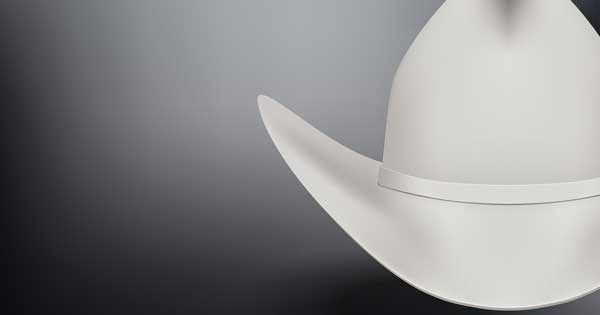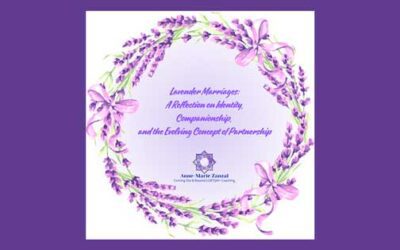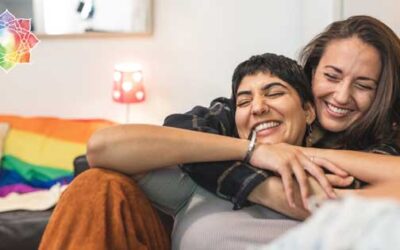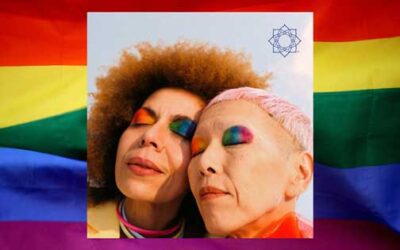I belong to a coming out later in life support group that is online. Invariably anyone who is married will introduce their story as “I am ________, I have been married to my best friend for X years, and he is such a “good guy.” Full disclosure when I wrote my introductory post I wrote the exact same thing.
John is and was a “good guy”. He and I had formed a deep friendship over the years that centered around our children. We were partnered in the business of marriage and, after a lot of couples counseling, we were amicable and non-contentious business partners. We did not have really have sex and there was almost no physical intimacy. But to the world we appeared to be a happy and well-adjusted couple, held in esteem by our community. We were and we weren’t.
Just Because No One Cheats, it Doesn’t Make it a “Good” Marriage
We struggled mightily in our marriage. He provided a financially stable life for the family we created together. A loving father to his children and well liked in the community. To the best of my knowledge. did not physically cheat on me, but he did have two emotional affairs with women. Years later after our divorce we talked about this emotional abandonment and he said “yes, my plan was to just quietly have affairs so we could keep the marriage going.” Stunned, all I could do is think “WTF”? Both outraged and grateful that I had left this marriage.
An all-around “good guy”, except he had a deeply moody side and would disappear from our existence, disassociated from our life as a couple and as a family. I often joke in our later in life community that we are all married to the same man. I know John had a very similar childhood to mind, troubled and traumatic. The difference is John pretended everything from his childhood was “fine” for most of our marriage. It was too hard or frightening for him to emotionally explore the painful memories. In marriage counseling, he said to our therapist “What if I don’t want to go there?” Our therapist replied, “You don’t have to.” John said, “I just want to be happy and forgot about that stuff.” Which he did and after beginning medication his dark moods disappeared and he was generally even. This was in about year eighteen of our marriage.
Except for not dealing with the difficult emotions made him less available to positive ones. John frequently disappeared into his own thoughts. We would go on family trips and the kids and I would be at a zoo or aquarium. John would be twenty feet behind us, not paying attention, and not with us as a family. Although society would deem him “good dad” status, he would fully admit even today that I made him a better father because I forced him to pay attention. It was very hard for him to do this in our family life.
There Was More Than a “Spark” Missing in Our Marriage
He didn’t really notice me as a woman. His compliments were very rare and mostly told me what was wrong with my toned and fit body. His ideal woman was very thin, much like his mom. He couldn’t care less if he slept with me. Years ago I left our bed because of very loud snoring. I missed the closeness of cuddling and falling asleep at night and waking up in the morning. It took years for me to convince him to go to a sleep center to get help with his apnea. He did finally when he thought it would help him lose weight. Although he did not abuse alcohol or drugs, John was very overweight and It limited his ability to participate in physical things. He worked constantly. Therefore he was often too tired to participate in anything. Consequently, I did many of these things with the kids by myself or with a friend.
I had married a “good guy”, but one who chose again and again in various ways not to engage in our relationship. In retrospect, I was alone and my choice of life partner in many ways mimicked my childhood. I was navigating life by myself, with little passion, or care for my emotional needs. We all marry someone who reminds us of one parent or a combination of both. John was very similar to my dad. Genial, helpful to his neighbor, but would disappear for long stretches into his own world. John’s world wasn’t alcohol like my dad, it was food and work, but it was very similar in his emotional unavailability. My father also never engaged the demons of his childhood either.
John did what he was supposed to do by “good guy” standards. He worked hard, provided a financially stable life, paid attention to the kids when prompted, and helped his neighbor. Yet, if John was a woman would this be ok? We are required to meet everyone’s emotional needs. We are required to not only live in the moment but think about the future so that we can meet future needs. We are required to make sure our husbands show up to be there for us and our kids. We are required to be kind, compassionate, thoughtful, especially raising children. If a woman provided for her family, paid minimal interest in the children, and left all the emotional work to her husband, did not care for her body, and did not show any interest in meeting any of her spouse’s emotional needs. Would this be considered a “good” woman? What constitutes a good man is a different standard than what we consider a good woman.
This is the problem and the danger of a good guy. Often when you dig into a “good guy’s” history, you’ll find his story framed by growing up in a society where boys and men are encouraged to bottle up their feelings. I know this happened in John’s family. Boys are born knowing how to express a full range of emotions, but they’re socialized away from that by male culture. They learn that anger and violence and stoicism are what ‘boys do,’ and vulnerability is what ‘girls do. They’re taught to renounce or surprise important emotional parts of themselves. As boys grow up, this pressure to conform to the norms of male culture means that many men learn to reserve their most vulnerable moments and sides of themselves for women. As women, we allow them this space.
Yet, as a human being in a relationship, our husbands have the responsibility to do the difficult work of getting in touch with the parts of themselves they have closed off or discarded. Men will never be able to behave decently to women until they stop seeing us as their emotional caregivers. Women are people too, and we have our own baggage to deal with, it is not fair to expect us to carry theirs.
When John and I left intensive marriage therapy, yet after his refusal to go any further in his own self work, we did have about six months of emotional connection. For me, it was the happiest time of our marriage. I felt seen and cared for by him. Then he entered this complicated relationship with a client and his wife that very much mimicked his parents relationship. He is a builder and these were very exclusive clients who he desperately wanted to please. He could see some of the dynamic,I could see most of itit, but he found himself drawn helplessly into the dynamic and he left our marriage emotionally again, as he threw himself into this ultimately crazy relationship with this couple.
We Were Stuck in the Cultural Expectation of a Straight Marriage
John had the choice to carry his baggage and consciously chose not to do the work. It wasn’t fair to me and it wasn’t fair to our family. Most of all it wasn’t good for John and his emotional well-being. I know many men do not even get to this stage. John conformed to all our patriarchal society’s expectations for his gender. And I did too. It was such a loss for both of us. In all honesty, I would have stayed in this marriage if I wasn’t gay, not because it met any of my needs, but it was what I was modeled by my parents (and John’s parents) and what I was told marriage was about and that I was the caretaker of everyone’s emotions. If I had not acknowledged I was gay, I would have gone to my grave never having felt passion, love, or someone looking out for me. I would not have found a partner that meets my emotional needs and also has my back. Thank God I am a lesbian because it forced me to leave a safe and secure, but emotionally unfulfilling passionless marriage. I would have lived my entire life emotionally alone and no matter how much therapy or emotional work I did things would have never changed because John wouldn’t do the work because in his view it was my job wasn’t it? No, it is not our job to be the emotional baggage carrier for all the people in our life and it is so very ok to leave a marriage to a “good guy.”
Like so many long-time married women when asked to describe their marriages, I would have said it was “fine.” Acknowledging the fact that I am gay helped me realize that I deserved more my life and marriage and it gave John his much needed out to preserve his “good guy” image in his own mind and for our community. He blamed the demise of our marriage on my sexuality and it was so much more complicated than that and he had a huge role in the demise Yet, at the time I took this blame because of the shame and guilt I felt because I wanted something different then a hetero marriage and what society tell us as mothers we should do for our familiet.
These difficult feelings affected me deeply as I navigated both the separation and divorce and the decisions I made. I want to give kudos to all the straight girls who have left this exact same marriage without this longing within them. Or perhaps they do have a longing for something better, my now partner always tells me if I was straight I would have left this marriage long ago.
What I really think is that I wished I had listened to my internal voice that tried to tell me over and over and over and over again that although John is a “good guy” he wasn’t the right person for me and my needs as an individual. I knew this when we were dating, but I was with someone who family and community approved. I had to be a good girl, didn’t I?
Subscribe to my blog for – Part II next time – “Good Girl” and Part III – Letter of the Straight Spouse
Anne-Marie is a coming-out coach and provides emotional and spiritual support for those people coming out to the LGBTQIA+ community. You can contact her at amazanzal@gmail.com or book a call here to discuss the options. She also administers two secret support groups – contact her details.



